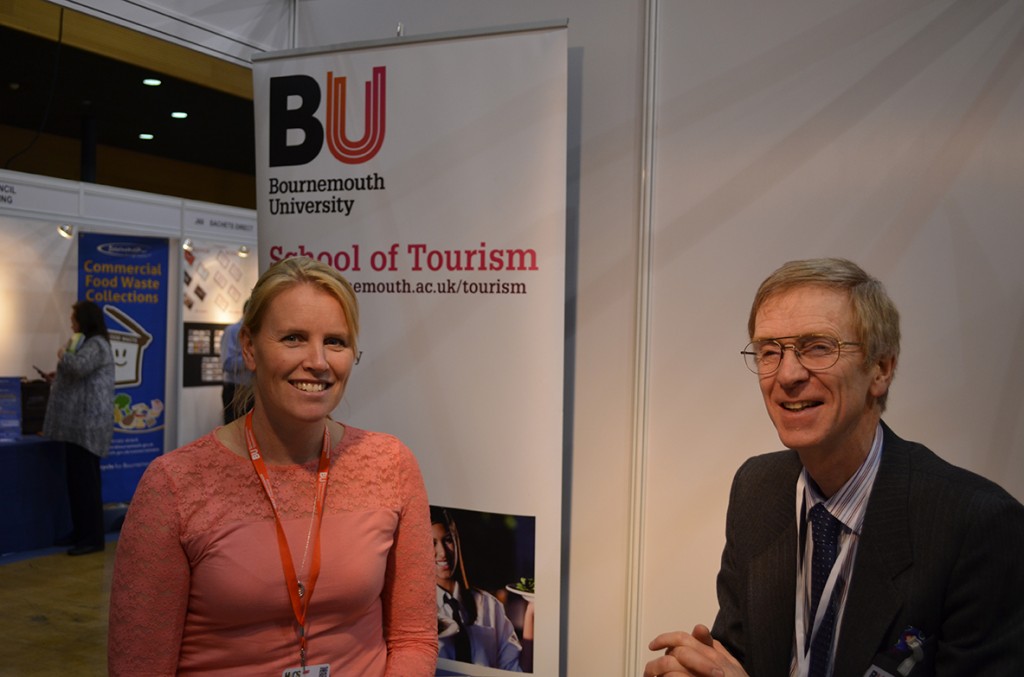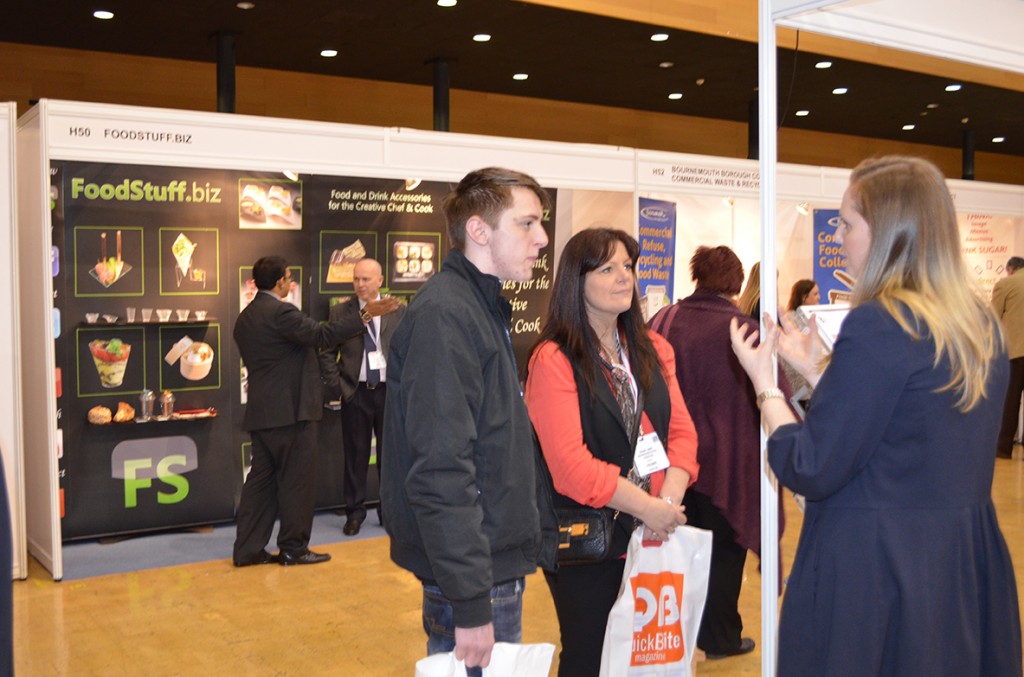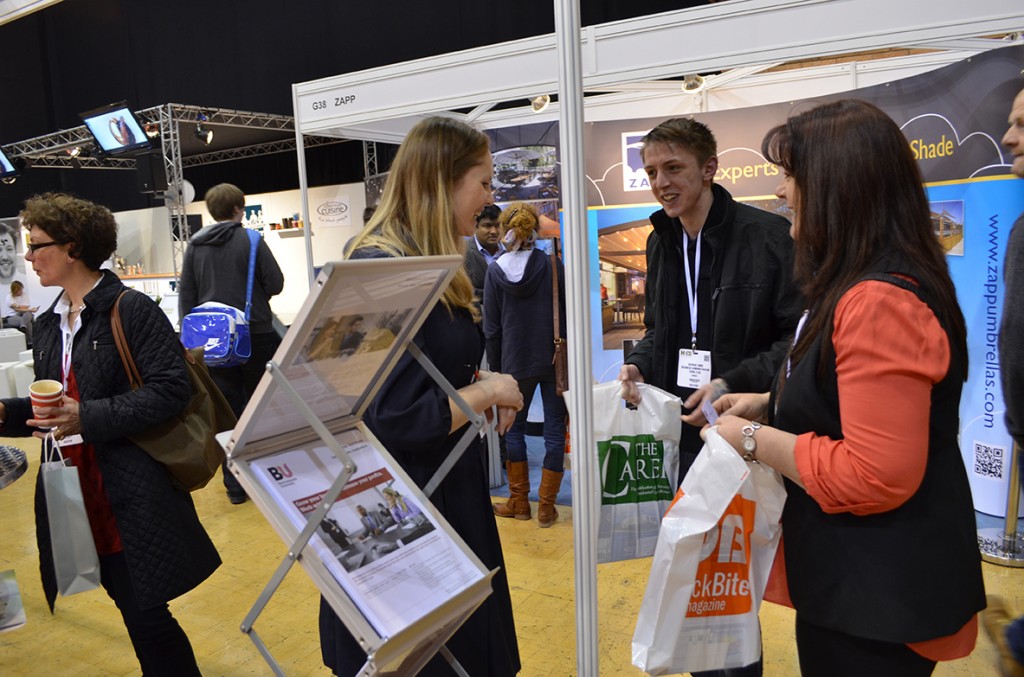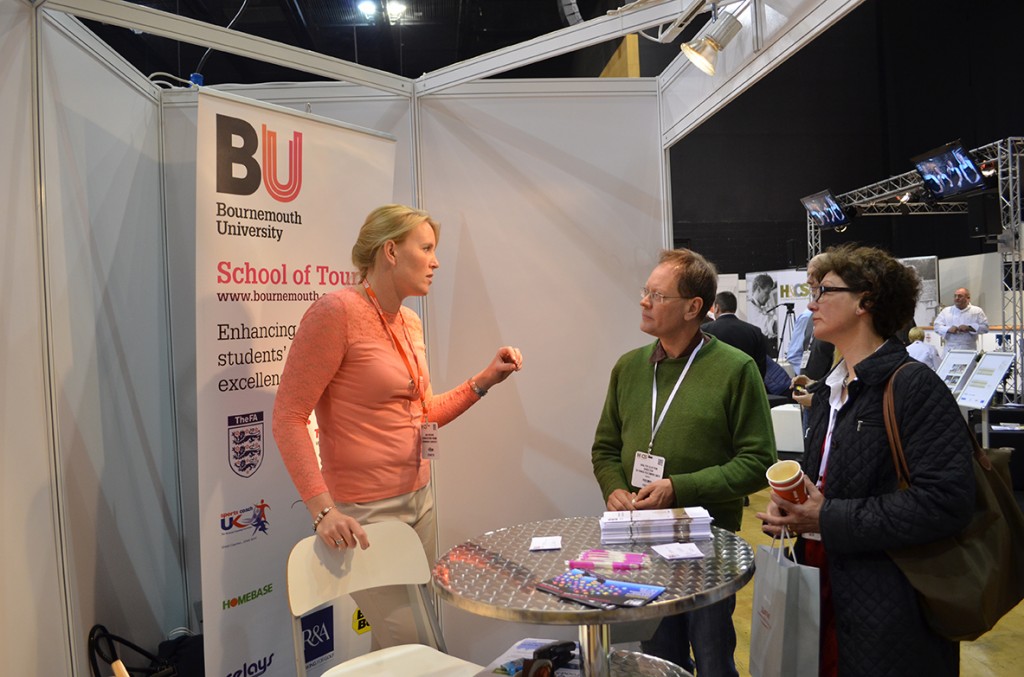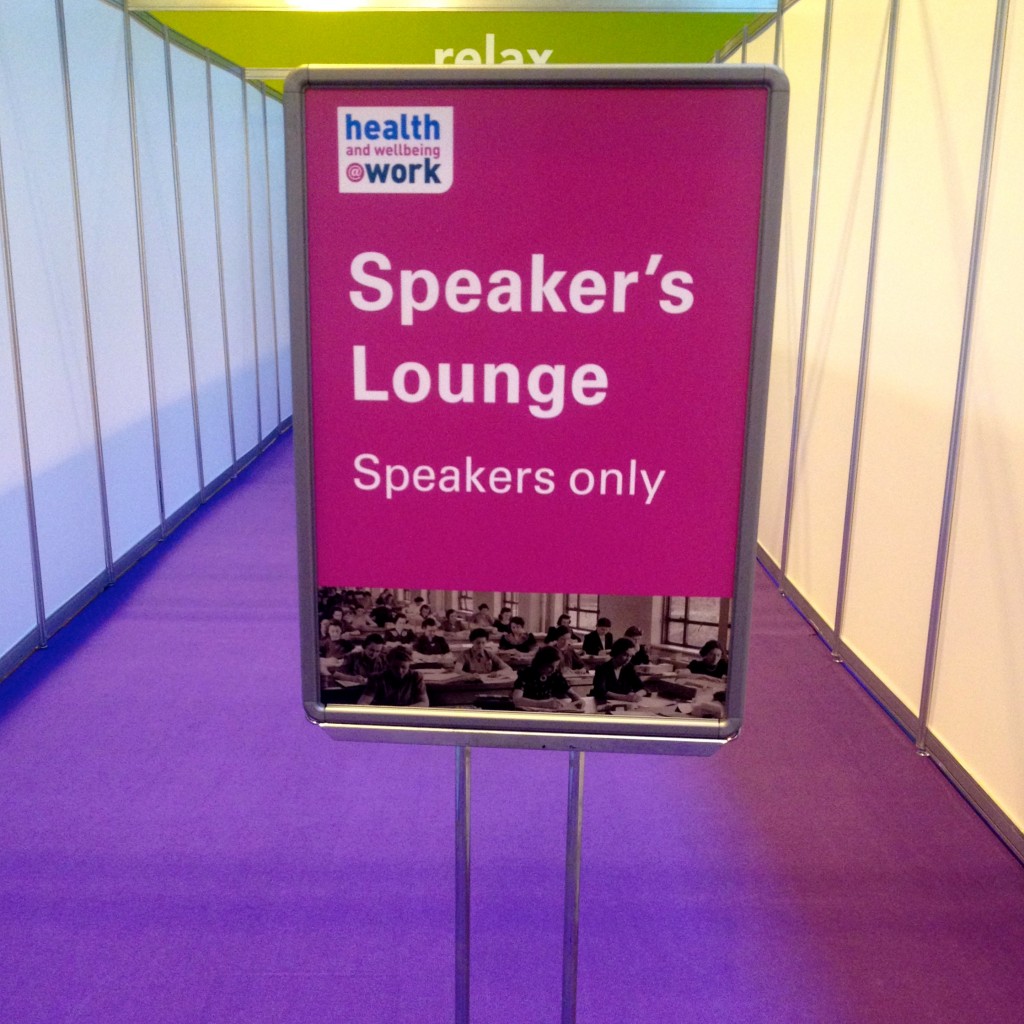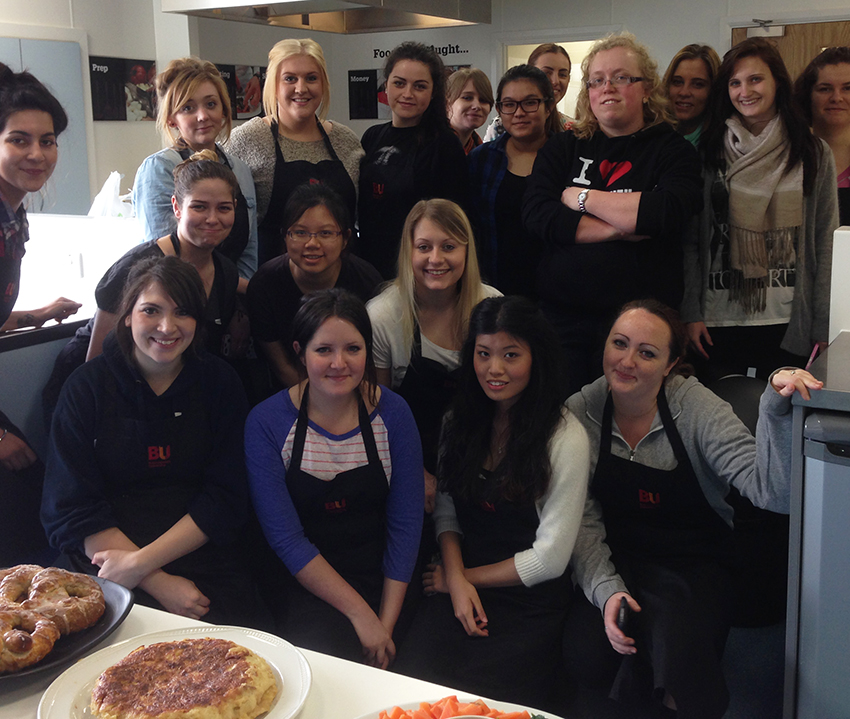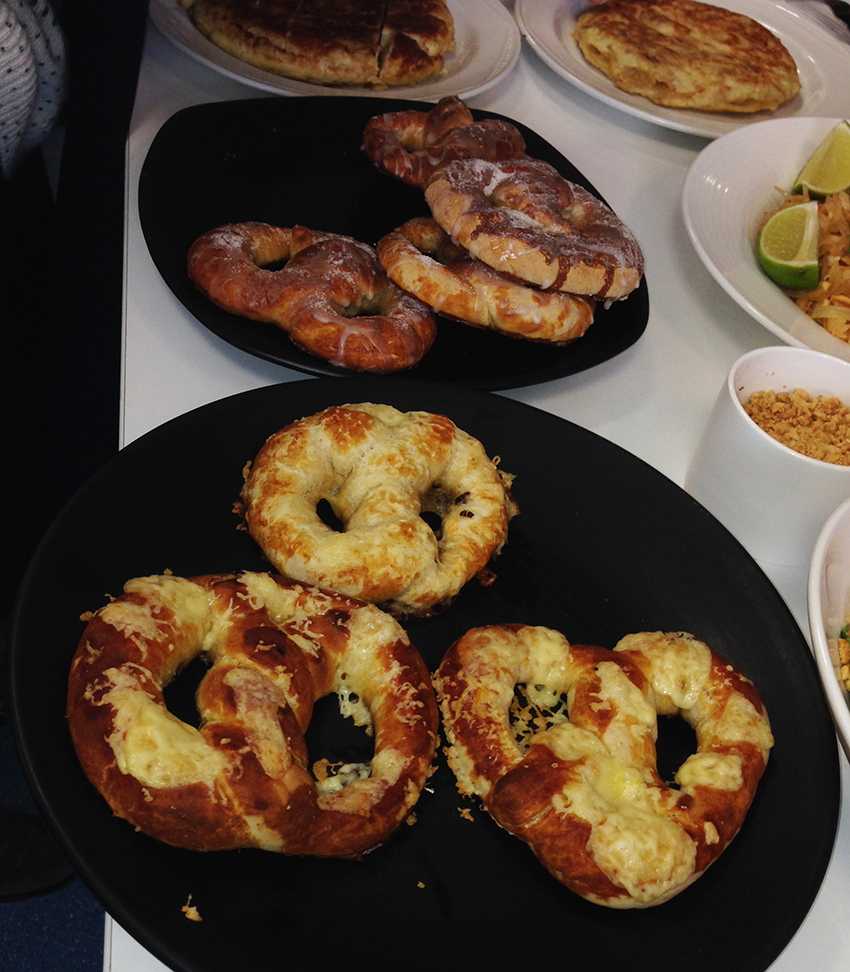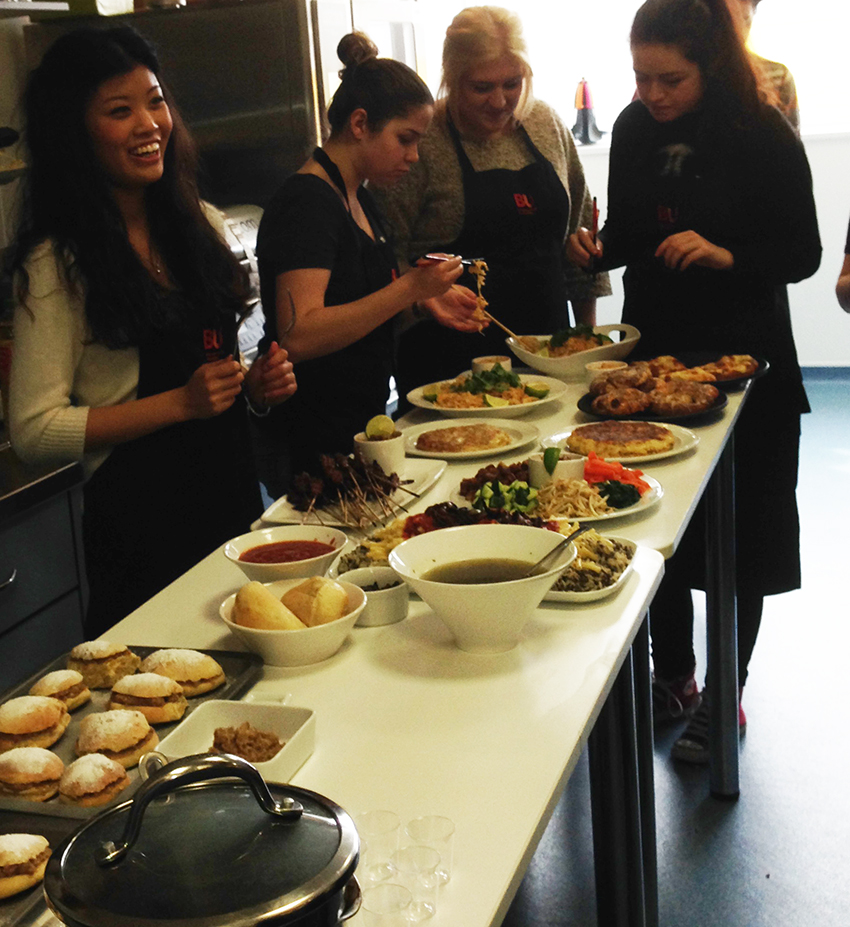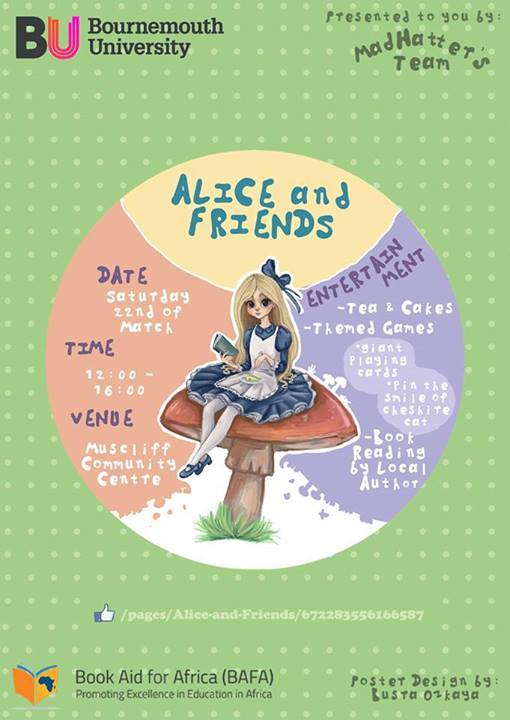School of Tourism student and social media assistant Divya met with Dr. Margaret Collins and asked her about creativity, how to become more creative and what it means for work.
Margaret is a professional coach who regularly runs workshops in creativity, most recently to a group of students at School of Tourism.
During your career, what have you done that you consider truly creative?
My background is as a researcher in the biological sciences, studying many different things but most recently, in the area of infection and immunity. For many, many years I perceived this to be a very logical profession with little to do with creativity. It’s only relatively recently that I’ve noticed and appreciated the strands of creativity that have made this career possible.
Creativity can manifest itself in many ways, ideas that come to birth through insight, intuition and innovation. One of the more creative leaps was understanding the significance of RNA sequences that allowed virus recombination – though I won’t go into detail here!

School of Tourism students at workshop with Margaret Collins
Of your creative accomplishments, what gave you the most satisfaction and why?
Practically speaking I guess it is the vision to set up my own training and coaching business, something that doesn’t come easily or naturally to a dyed-in-the-wool academic and lifelong employee. I suspect you can guess why this is important to me – it does provide an income though is more significant to me because it becomes the conduit for me to be more creative and entrepreneurial than at any time in my life.
Through the coaching and training programmes I deliver, I also see the real impact on the personal and professional lives of more people than I had imagined possible. On a smaller scale, I love getting involved with DIY projects and am really proud of a shelter I made for the three chickens I have at home – it has certainly kept them safe and dry throughout all the storms and gales of this winter – and much as I know they love the hand that feeds them, I think my chickens love me for it!
How can students/staff improve their level of creativity?
By daring and doing it!
Creativity requires a willingness to play which many think inappropriate in a workplace environment. It also requires that you live with the risk of not “coming up with the goods”, of getting it wrong, having an idea which doesn’t go anywhere or maybe no ideas at all.
The more we are prepared to play and give ourselves space for creative thought, the more likely we are to develop our creativity.
To this end we need to give ourselves permission and the tools for the job. A comfortable environment, an inspiring view, enough time and space, the vulnerability to be ourselves… The neuroscience of creativity is becoming more clearly understood but to as humans, we still need to allow the conditions that let the neurology do it’s stuff!
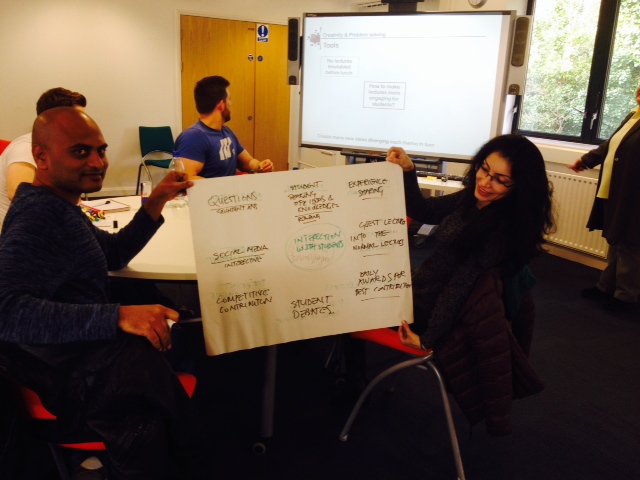
How can lectures be more creative?
How can students use creativity to make writing enjoyable?
Interesting question. Personally I’m not sure I have a simple answer and it might depend on what type of writing you have in mind or what the purpose is. When writing longer reports or documents I like to start with an outline, almost creating a story board for what will be my journey. This vision, which for me can be visual or verbal, provides a useful container for my thoughts. Once I have this I tend to start at the place I find most easy. Sometimes that’s the beginning. Other times I start with something mundane like a bibliography/reference list or my methods section. As I work my way through more of “the easy bits” I’m often spurred on by the knowledge that the end is in sight.
My enjoyment may arise as I get engrossed in the content, sometimes it feels more like “grind” but that feels very good when it’s done. I create my enjoyment by choosing and shaping my environment. Personally I prefer quiet. In the past I’ve enjoyed background music. I get my tools together – whether that’s my laptop and any reference documents I need or a notebook with a selection of pens. I make sure I’m sitting comfortably, that I’m warm enough, often with a scarf around my shoulders and that my desk is clear. Personally I can’t work amidst clutter.
The research suggests things like space, windows and calm scenery are important for creativity and yes, I find this works well when I’m looking for ideas. When it comes to the task of writing though I turn the focus onto me and my keyboard and hours can pass by if I’m not careful. I do make a deliberate effort to take short breaks, to stretch, to look up and away from my work, to walk even if only to get a drink.
How does creativity and innovation differ?
Subtle and overlapping concepts. To me creativity is coming up with the idea, innovation might be using an idea, mine or (with permission if appropriate) someone else’s and putting it to a new use or application. I know that the distinction is significant in an academic sense though practically I’m happy to work through either route in most cases.
How can creativity be beneficial within a work environment, or to the individual person?
It brings insight, freshness, new opportunity and in many cases, simple joy. Turning ideas into some sort of reality brings great satisfaction. Who wouldn’t want that? Even people who value security and the stability of comfortable routines wouldn’t really want to live through identical days in their external and internal worlds. Perhaps creativity is the source of our dreams – or is it the other way round?!
Any workplace which wants to do more than “go through the motions” needs to draw deeply on the creativity of it’s workforce. In business, creativity is often what brings success, either through completely new ideas or the exploitation or exploration of a currently successful service/product.
What inspires you?
Many, many things. Nature, the physical world, a mountain, seascape or a sunset, the beauty that is biology as our molecules work their wonders, other people and their stories of courage and journey. I can find inspiration wherever I look… and maybe that’s important too.
How can a person identify unlock or identify their creative talents?
First look for them (your creative talents) and believe in them.
Often we tend to be so self-critical and judgmental, tendencies that can kill off any sparks of creativity. Even if you’re new to the idea that you might possibly be creative, holding the space for that belief – that you might possibly be creative and that your creativity can grow – is essential. Our minds will find the evidence to prove what we believe… if we insist that we are not creative, the evidence and frustration will present itself in abundance. If we hold that we might grow in creativity, we will see sparks enough to sustain our hope.
So find even the small sparks and begin to kindle them into something bigger and brighter. You might find them in things that you really enjoy, aspects of work or of play. You might recognise them when other people comment or complement you, particularly if your response is to shrug it off and think “Surely, anyone could do that”. It’s highly likely that they can’t. Often creativity feels like “just what I do” without any special label attached and only hindsight gives a more accurate perspective. Be prepared to play and to be patient, to focus and to draw back before having another go. And maybe that’s where creativity and innovation blend as many of my most creative ideas have needed to be worked and reworked many times before I was really satisfied with the outcome.
From your experience, what was the most impressive thing you’ve seen from another individual, that was particularly creative/ sparked inspiration for you?
I am particularly awestruck by people who make music. The ability to envision music in your head and then translate it into sound through whatever medium – the human voice, a guitar, an orchestra or even a djembe drum… Awesome!
To sum up, give us your definition of creativity in a few words.
For me, creativity is a process or an attitude that manifests something new, which might result in a physical expression (picture, sound, object) or a new perspective or insight.
Inspired by Dr. Margaret Collins? Have a look at her YouTube Blog “How to get ahead in a professional career.”


